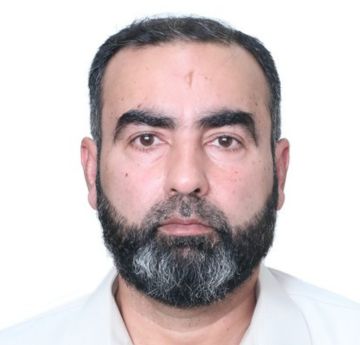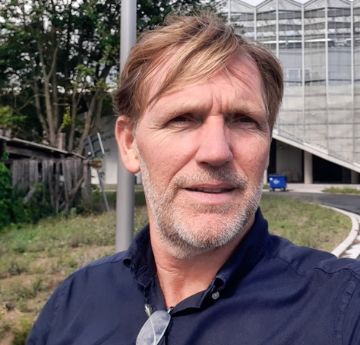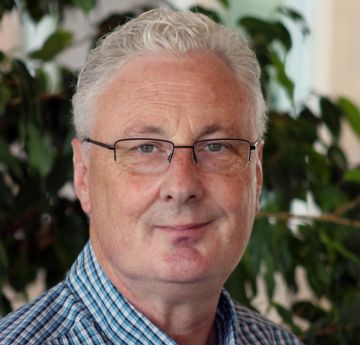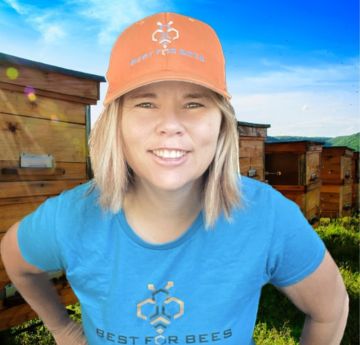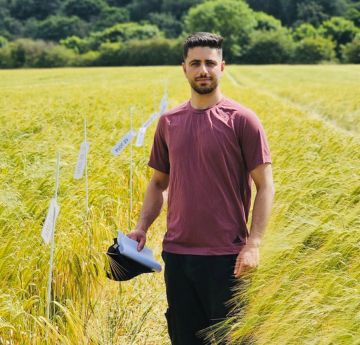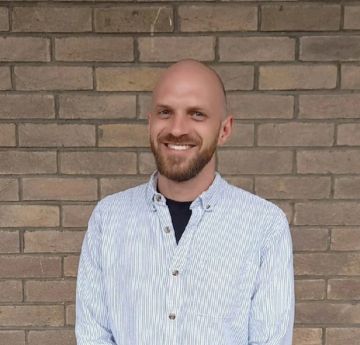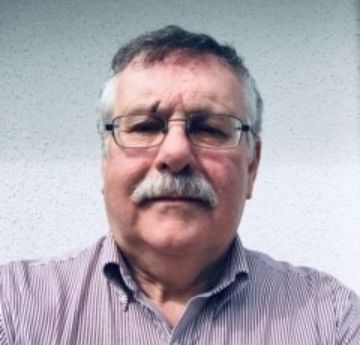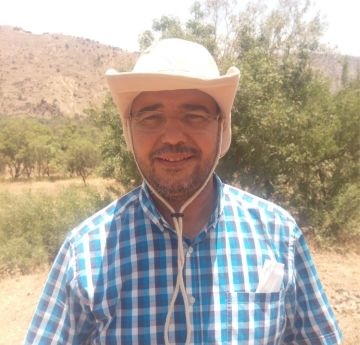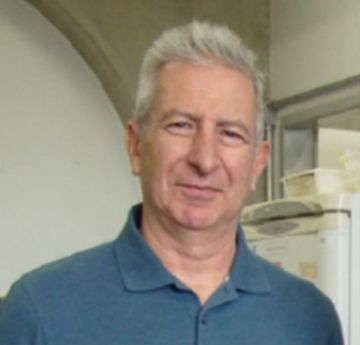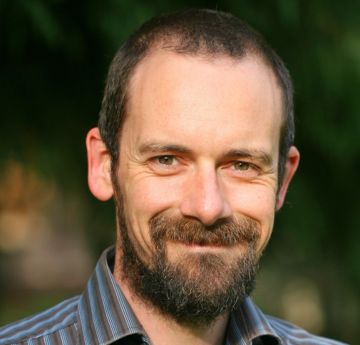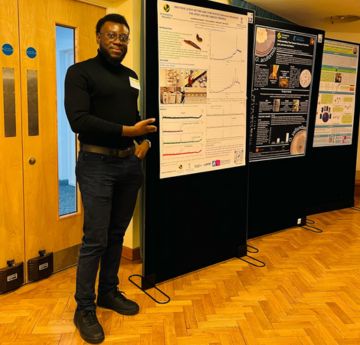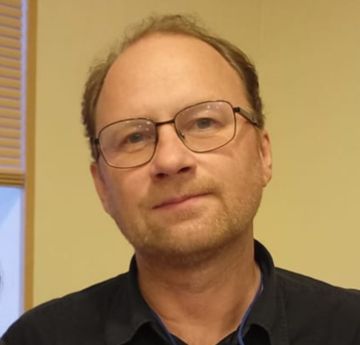Alessandra Ricelli, Researcher at National Research Council of Italy
Poster: Is Drosophila suzukii a vector for mycotoxin-producing fungi contaminating cultivated blueberries?
Dr. Alessandra Ricelli is a researcher at the National Research Council of Italy.
Her main research focuses on the control of the biosynthesis of particular mycotoxins (aflatoxins, ochratoxin A, patulin) by certain widespread fungal species (Aspergillus flavus, A. carbonarius, Penicillium expansum) that grow on different food commodities. The control strategies studied are those based on the use of certain food-grade compounds with antioxidant and/or antimicrobial properties (e.g., styryl-heterocycles, flavones). Currently, she is studying the use of ozone to maintain the post-harvest quality of particular fruits and vegetables.
Alessandra's poster: Is Drosophila suzukii a vector for mycotoxin-producing fungi contaminating cultivated blueberries?
She is looking forward to meeting with other delegates to exchange information on work experiences and discuss potential new projects.
Atif Jamal, Principal Scientific Officer at the Pakistan Agricultural Research Council
Talk Title: Biopesticide-driven Aflatoxin control in Pakistan
Dr. Atif Jamal is a Principal Scientific Officer (research and teaching) at the Pakistan Agricultural Research Council.
Atif's current research interest is around aflatoxin control/mycoviruses and he will be discussing this in his talk about biopesticide-driven aflatoxin control in Pakistan.
Through attending the symposium, Atif is hoping to connect with professionals, experts, and peers from around the world. He is looking forward to finding potential collaborators for future projects, and presenting his work to a diverse audience who can offer him feedback and potential solutions to further his research.
Carl Rentes, Commercial Director at Vivent Biosignals
Talk Title: Monitoring Biotic Stress using Plant Electrophysiology
Carl Rentes is the Commercial Director at Vivent Biosignals.
Plant Electrophysiology measures real-time plant responses to a wide range of biotic and abiotic stimuli. This information can be used for comprehensive evaluation of biostimulant-induced changes in plant physiology to provide actionable insights about e.g. efficacy of the compound, treatment applications, or differences between species or genotypes.
Carl’s talk is on several innovative projects such as recent publications with one of their collaborators Syngenta. Vivent’s technology was used to assess real-time plant responses to both plant parasitic nematode infections and for the first time, to nematicide efficacy, and a research project with UK-based partners such as Hutchinsons, NIAB, and Adrian Scripps on monitoring nutrient uptake and water uptake in real time.
David Hallahan, Chief Scientist at Entomol Products
Talk Title: Catmint essential oils as feedstock for a range of insect control products
David Hallahan is the Chief Scientist at Entomol Products.
David is interested in household pest control, stored product pest control using repellents, and aphid control in greenhouses.
David will be speaking about catmint essential oils as feedstock for a range of insect control products. He is hoping to form valuable connections and engage with other IPM members to discuss ideas and potential repellent solutions.
Erica Shelley, CEO and CTO at Best for Bees
Talk Title: Innovative Approaches to Hive Health: Bee Vectoring and the ProtectaBEE® for Varroa and Disease Management
Dr. Erica Shelley is the CEO and CTO at Best for Bees.
Erica's current project is the ProtectaBEE All-In-One Hive Entrance which can be found on the Best for Bees website
Erica's talk is on the Innovative Approaches to Hive Health: Bee Vectoring and the ProtectaBEE® for Varroa and Disease Management. She is also looking to connect with colleagues and learn about new approaches to IPM, as well as experience the culture and geography of the Swansea region.
Hassan Awashra, Trials Officer at i2L Research
Talk Title: Challenges and practicalities of biopesticide product testing in crops
Hassan Awashra is a Trials Officer at i2L Research.
He focuses on testing the efficacy of various plant protection products to ensure they meet industry standards and regulatory requirements. Hassan and the team aim to expand within the biopesticide and IPM sector to generate robust, efficient and accurate data as well as developing novel assessment tools to assess the efficacy of biological products.
Hassan will be discussing the challenges and practicalities of biopesticide product testing in crops at this year's symposium. He is excited to connect with biopesticides manufacturers and IPM experts to collaborate on innovative solutions, learn about sustainable alternatives to traditional pesticides, and keep up with the latest trends in IPM to enhance his knowledge. He is also hoping to network with potential clients interested in testing the efficacy of biopesticides and discuss the challenges faced in the testing and implementation of biopesticides.
Jack Dolphin Haslam, Technical Development Specialist at Fargro
Talk Title: Holistic approach to plant disease management
Jack Haslam is a Technical Development Specialist at Fargro.
Jack's role is to manage the development of Fargro’s range of technical products – including growing media, fertilisation, sustainable crop protection products and digital agronomy and sensor solutions. His current interests include harnessing natural processes in crop protection to improve yields and reduce input costs.
Jack will be discussing the holistic approach to plant disease management at this years IPM symposium.
Javad Karimi, Professor at Ferdowsi University of Mashhad
Talk Title: Entomopathogenic fungi, Beauveria bassiana and Metarhizium anisopliae, as endophyte primed immune responses of tomato plant to herbivory
Dr. Javad Karimi is a professor at Ferdowsi University of Mashhad.
His academic teaching and research interest focuses on insect pathogens as biocontrol agents with special reference to entomopathogenic nematodes (EPNs) (including their symbiotic bacteria) and insect parasitic nematodes. He has an international approach in research and most of his works are resulted from shared projects with scientists from USA, Canada, Germany, Italy, Netherlands, Switzerland, Turkey, China, South Africa and other countries.
Javad is the chief editor of Journal of Entomological Society of Iran - JESI- official publication of the Entomological Society of Iran with more than 50 years publication history.
Javad will be speaking about Entomopathogenic fungi, Beauveria bassiana and Metarhizium anisopliae, as endophyte primed immune responses of tomato plant to herbivory. He is also hoping to To extend his network with researchers and find some new friends and potential funds for research.
Lucía Adriana Escudero-Colomar, Researcher at the IRTA
Talk Title: Laboratory studies on the efficacy of three Metarhizium brunneum strains in controlling Halyomorpha halys
Dr. Lucía Adriana Escudero-Colomar is a researcher in the scientific program Sustainable Plant Protection at the IRTA.
Her present research focuses on the biology of Halyomorpha halys in northeastern Spain, as well as the development of control strategies in fruit orchards.
At the IPM symposium, she will discuss laboratory studies on the efficacy of three Metarhizium brunneum strains in controlling Halyomorpha halys. Adriana intends to get to know and learn from other colleagues' research at the symposium, as well as to form collaborations and alliances in the development of entomopathogens for pest management by showing what she is currently working on.
Martyn Wood, Postdoctoral Research Associate at IMBB
Talk: Discovery and screening of novel bacteria, their sonicates and their solvent extracts against Culex pipiens molestus larvae
Martyn Wood is a Postdoctoral Research Associate at the Institute of Molecular Biology and Biotechnology, Foundation for Research & Technology - Hellas.
Martyn is currently working as part of the MicroBioPest project at IMBB Forth, funded under the HORIZON-WIDERA-2022-TALENTS-01-ERA Chairs programme.
Martyn will be discussing the discovery and screening of novel bacteria, their sonicates and their solvent extracts against Culex pipiens molestus larvae. He is also looking to promote his current project, learn about ongoing IPM research and network with potential collaborators.
Mary Ellis, CEO at PheroSyn
Talk Title: Pheromones and the future of crop protection
Dr. Mary Ellis is the CEO of PheroSyn.
Mary has experience in Agri-tech, biopharmaceuticals, phytocannabinoids, medicinal plants, Controlled Environment Agriculture (CEA), technology commercialisation and academic/corporate relationship building. Her current research focuses on Pheromone-based pest control in legume products
At this year's IPM, Mary will be discussing Pheromones and the future of crop protection. She is also looking to network and meet interesting people who can help build her business.
Milan Pernek, Senior Researcher at the Croatian Forest Research Institute
Talk Title: Possibilities of controlling the Oak Lace Bug with the entomopathogenic fungus Beauveria pseudobassiana in forests
Dr. Milan Pernek is a Senior Researcher at the Croatian Forest Research Institute.
His current research interest is looking into the biological control of oak lace bugs and he will be discussing this in his talk titled "Possibilities of controlling the Oak Lace Bug with the entomopathogenic fungus Beauveria pseudobassiana in forests" at the New IPM symposium.
Milan is expecting to learn more about the latest insights on the position of biological control in the world and future collaborations in scientific research or the establishment of companies, and he is especially pleased that the forestry sector is being highlighted.
Muhammad Musa Khan, Associate Researcher at Zhejiang University
Talk Title: UV-mediated immune response and interference with integrated pest management strategies
Dr. Muhammad Musa Khan is an Associate Researcher at the Hainan Institute of Zhejiang University.
Muhammad's main research interests are toxicology, insecticide resistance and management, and insecticide environmental risk assessment. He is leading two important research projects as a Principal Investigator (PI) in the field of entomology, focusing on integrated pest management (IPM). These projects aim to study insecticide resistance in the Brown planthopper (Nilaparvata lugens) and its natural predator, the Rove beetle (Paederus fuscipes), in Hainan Province. The main goal is to find insecticides that can kill the Brown planthopper without harming its natural predators, like the Rove beetle. This is crucial because he wants to protect crops without harming the beneficial insects that help keep the ecosystem balanced. He is also looking at both chemical and non-chemical methods to manage resistance in the Brown planthopper. Muhammad is carefully studying how these methods affect both the Brown planthopper and its natural enemies, especially the Rove beetle. He aims to provide farmers with a range of tools to manage pest resistance effectively while preserving the natural predators.
Muhammad will be discussing UV-mediated immune response and interference with integrated pest management strategies at this year's IPM symposium. He is also looking to discuss potential collaborations with other experts in the field of toxicology and insecticide resistance.
Owen Jones, Managing Director at Lisk and Jones Consultants
Talk Title: The role of semiochemicals in lure and kill approaches for the control mosquitoes and sandflies
Dr. Owen Jones is the Managing Director at Lisk and Jones Consultants.
Owen is participating in a Bill and Melinda Gates Foundation funded project at The School of Chemistry, Cardiff University where he is an honorary professor. The project aims to identify new long range floral attractants for Malaria vector species of mosquitoes.
Owen's IPM talk will focus on the role of semiochemicals in lure and kill approaches for the control mosquitoes and sandflies. By attending the symposium, he is hoping to make new contacts for collaborative projects and possibly gain new clients for his consultancy business.
Rachid Bouharroud, Entomologist and Head of R&D unit at INRA-Morocco
Talk Title: Evaluation of tomato, pepper and melon Mediterranean landraces resistance to key pests and diseases
Dr. Rachid Bouharroud is an Entomologist and Head of R&D unit at INRA-Morocco (National Institute of Agricultural Research), regional center of Agadir.
His research work is focused on integrated pest management of key pests of tomato, citrus, argan and recently cactus pear and red fruits. His research topics are: biopesticides using plants- and bacteria-based extracts, biological control, side effects on non-targets, management of climate inside greenhouse and cultural practices. The most prestigious award in Morocco, which is the Hassan II Prize for innovation and research in the agricultural field, was obtained in 2021 for selection of resistant cultivars to the carmine cochineal and nominated as a national coordinator of Moroccan research plan related to cactus crops (2021-2024). As advisor, he supervised 7 PhD students and more than 100 master/undergraduate students from Morocco, Tunisia (ISA Chott-Mariem), Senegal (Univ Thiès), France (Univ Rennes 1), Italy (CIHEAM-Bari) and USA (Univ Minnesota). He’s a part time lecturer at IAV-Hassan II teaching pests of vegetables, fruit trees and IPM, in addition to, field trainings for farmers. He has published 105 peer-reviewed papers (69 Scopus), 6 book chapters and more than 140 conference papers. He managed 6 funded research projects as a principal investigator and team member in 8 other projects.
Richard Ian Samuels, Entomologist/Insect Pathologist at UENF
Talk Title: Validating fungus-impregnated traps (MataAedes and “ovitraps”) for the control of Aedes adults and larvae in residences
Dr. Richard Ian Samuels is an Entomologist/Insect Pathologist, who has been working at UENF since 1996 as an associate professor.
His research focuses on the use of entomopathogenic fungi to control a range of crop pests (for example: leaf-cutting ants) and disease-vectoring insects, such as Aedes aegypti. He is a CNPq level 1 Research Fellow (Federal Brazilian Government) and a Rio State Scientist (FAPERJ). He is the founder and head of the UENF Insect Pathology Group and is also responsible for the UENF Dengue Research Unit as well as the Myrmecology Unit. His recent projects include the development of an accessible fungus-impregnated mosquito trap in collaboration with the start-up MosquiTec Ltd. (www.mataaedes.com.br). This trap will be the subject of one of his talks at New IPM 24. The other talk will describe the use of endophytic entomopathogenic fungi to protect tomato plants in the field as well as the role of these endophytic fungi in stimulating plant growth. These are very different topics but show the versatility of entomopathogenic fungi and real-world applications.
Richard Naylor, Director of Cimex Store
Talk Title: Developing products for bedbug control in a realistic test environment
Dr. Richard Naylor is the Director of Cimex Store and an Entomologist.
Richard's talk will be about developing products for bedbug control in a realistic test environment Cimex Store Ltd was established to meet the growing demand for live bedbug specimens from Universities, research labs and dog training schools, who use them for training bedbug detection dogs.
In 2019 Cimex Store Ltd installed two test bedrooms to provide a realistic test environment for bedbug product development. The setup was initially used to develop iBug, a digital remote monitoring system for bedbugs. Since then, they have been used almost continuously to test a wide range of other bedbug products, including barrier tapes, pit fall traps, sticky traps, desiccant dusts, and sprays. The rooms are fitted with infra-red timelapse cameras for monitoring bed bug activity, which makes it possible to observe how bedbugs interact with monitoring devices. A live human host (the author - Naylor) sleeps in the rooms to elicit the natural bedbug foraging and aggregating behaviour.
Roger Moore, Senior Research Entomologist at Forest Research
Talk Title: The large pine weevil, Hylobius abietis, an intractable pest of forestry restocking
Dr. Roger Moore is a senior research entomologist at Forest Research, with over 35 years of experience working on insect pests of forestry to prevent damage to forest trees.
For the last 30 years Roger has led the research programme on the large pine weevil, Hylobius abietis. His current focus is on biological control of Hylobius using entomopathogenic nematodes and fungi (EPF/ EPN). Past research has enabled him to develop two key approaches to help the forest industry combat Hylobius, the fallow strategy and Hylobius Management Support System (HMSS). He has led the research and trials testing alternative new insecticides, plant barriers and coatings to protect forest restock trees from Hylobius and to replace outgoing insecticides.
Another main project aims to determine the level of risk to Scots pine and GB forestry posed by the recent discovery of defoliating caterpillars of the pine-tree lappet moth (Dendrolimus pini) and options for potential control in the event of outbreak.
Roger will be discussing the large pine weevil, Hylobius abietis, an intractable pest of forestry restocking at this year's symposium. He is also interested to network and establish connections with scientists and industrial partners to develop fresh approaches for the biological control of the large pine weevil and monitoring of the pest or protection of plants from its feeding damage.
Sheridan Woo, Professor of Plant Pathology at the University of Naples Federico II
Talk Title: Microbial Consortia in Agriculture – Using Nature’s biodiversity for eco-sustainability
Sheridan Lois Woo is a Professor in Plant Pathology at the University of Naples Federico II.
Sheridan's current scientific research program is focused on the use of plant beneficial microbes for crop protection-production as alternatives to chemical synthetic agrochemicals: developing innovative biotechnologies for biological control of phytopathogens-pests, plant growth enhancement, induction of systemic resistance to biotic/abiotic stress, improvement of agrifood quality.
Other current research projects include:
MUR-PNRR - National Research Center for Agricultural Technologies (CN2-AGRITECH). Spoke 2 – Crop Health, Task 2.2.4 - Biopesticides and biostimulants, delivery strategies and environmental impact.
MUR-PNRR - National Biodiversity Future Center (CN5-NBFC). Spoke 6 - -Biodiversity and human wellbeing, Task 3.2: Microbial biodiversity of natural or anthropogenic niches for production of primary interest: food, drinks and novel bioactive molecules.
ECOSTACK - Stacking of ecosystem services: mechanisms and interactions for optimal crop protection, pollination enhancement, and productivity. EU Horizon 2020-Research and Innovation Program.
Sheridan will be talking about Microbial Consortia in Agriculture – Using Nature’s biodiversity for eco-sustainability, and is looking to exchange ideas and discuss potential collaborations with researchers and industry leaders.
Suleiman Mustapha is a Ph.D. student at Rothamsted Research & Swansea University
Talk Title: Is Metarhizium brunneum ovicidal against grey field slug (Deroceras reticulatum) eggs?
Suleiman Mustapha is a Ph.D. student at Rothamsted Research & Swansea University.
His work focuses on developing sustainable pest management strategies for oilseed rape. Specifically, he explores a ‘push-pull’ approach using semiochemicals i.e., behaviour-modifying chemical cues to target establishment pests like the cabbage stem flea beetles and the terrestrial mollusc- grey field slug. He is very much interested in integrated pest management, biological control, chemical and behavioural ecology.
Suleiman is speaking about Metarhizium brunneum ovicidal against grey field slug (Deroceras reticulatum) eggs. He is hoping to learn about new ideas and innovation in IPM and build his network.
Vadim Kryukov, Head of the lab of Ecological parasitology at the ISEA
Talk Title: Approaches to manipulate the insect microbiota and immunity to enhance the effectiveness of entomopathogenic fungi
Dr. Vadim Kryukov is the head of the lab of Ecological parasitology at the Institute of Systematics and Ecology of Animals.
Vadim's current Interests include insect immunity, signaling pathways, fungal pathogenesis, combined infections, ecology of entomopathogenic fungi, and biocontrol. He is currently working on molecular and biochemical mechanisms of the Colorado potato beetle immune response during the development of fungal infections and different physiological states.
At the New IPM symposium Vadim will be discussing approaches to manipulate the insect microbiota and immunity to enhance the effectiveness of entomopathogenic fungi. He is looking forward to discussing new ideas and forming relationships with others to encourage collaboration.

Yang Gao, Ph.D. candidate at Zhejiang University
Talk Title: Plants attacked above-ground by leaf-mining flies change below-ground microbiota to enhance plant defense
Yang Gao is a Ph.D. candidate at Zhejiang University.
Yang's current interests and projects are centered around plant-insect interactions
Yang's talk at the IPM will be centered around how plants attacked above-ground by leaf-mining flies change below-ground microbiota to enhance plant defense. While attending the event, he is also looking to learn more about the progress in insect solutions and network with foreign students.
Yury Noskov, Senior Researcher at the ISEA
Talk Title: Some aspects of survival and infectious diseases of the Colorado potato beetle during hibernation: prospects for forecasting and population control
Dr. Yury Noskov is a Senior Researcher at the Institute of Systematics and Ecology of Animals, Siberian Branch of Russian Academy of Sciences.
Yury’s current research interests focus on various aspects of insects overwintering including immunity, microbial community, infections, survival rate, etc.
At the IPM Yury will give a talk about the Colorado potato beetle overwintering in a temperate climate, its survival rate, infections and immunity. His talk title is “Some aspects of survival and infectious diseases of the Colorado potato beetle during hibernation: prospects for forecasting and population control”. By attending the symposium, he is also looking to learn about the latest approaches in IPM, share and exchange ideas with foreign colleagues.


